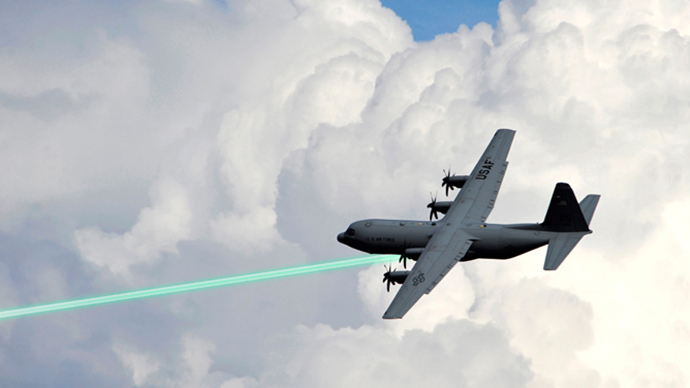Starwars one step closer: DARPA’s ‘death ray’ to begin field tests

The US Defense Advanced Research Projects Agency (DARPA) has received government permission to field test its HELLADS laser weapon system.
“The technical hurdles were daunting, but it is extremely gratifying to have produced a new type of solid-state laser with unprecedented power and beam quality for its size,” DARPA program manager Rich Bagnell said in a statement cited by the agency’s website. The testing is set to start this summer.
High-Energy Liquid Laser Area Defense System (HELLADS) has been in development since 2003. It is intended for use as a protection system for aircraft.
“Enemy surface-to-air threats to manned and unmanned aircraft have become increasingly sophisticated,” DARPA states on its website. “High power lasers can provide a solution to this challenge, as they harness the speed and power of light to counter multiple threats.”
READ MORE: Next-gen US drone: Now equipped with ‘death ray’ laser
The statement adds however, that the laser could also be used for attack: “Laser weapon systems provide additional capability for offensive missions as well—adding precise targeting with low probability of collateral damage.”
To deploy that in practice, though, DARPA says the weapon must be made smaller and lighter than currently possible – and America’s drones will have to stick with relatively imprecise missiles for the time being.
READ MORE: 'No tissue charring': New Russian laser could revolutionize medicine, smartphones
The goal of the HELLADS project is to build a laser with 150 kilowatts of power, weighing under 750 kilograms, and with a size less than 3 cubic meters.
In mid-April, DARPA’s contractor General Atomics Aeronautical Systems (GA-ASI), unveiled the HEL Generation 3 laser. It meets these size specifications and is fitted with a module generator system, which enables it to produce 75 to 300-kilowatt beams.
Developers believe it can be mounted on GA-ASI’s new Avenger drone. The drone’s jet engine is capable of producing enough energy to recharge the laser’s battery in flight, essentially giving the weapon infinite ammunition.












